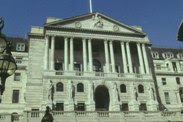 There are lots of stories circulating about Sovereign Wealth Funds. So what are they?
There are lots of stories circulating about Sovereign Wealth Funds. So what are they? They are government funds from counties like the oil rich Arab countries & emerging markets like Singapore & China. The Chinese one is worth $1.46 trillion! ($1 460,000,000,000 ) The money is generated by the export of natural resources such as oil and gas in the case of the Gulf States and Russia and manufactured goods in the case of China. The Sovereign Wealth funds are buying assets to safeguard the financial future of their home countries these might include shares in large companies, government stocks or commercial property. One example in the news recently is Dubai International Capital owns budget hotel chain Travel Lodge and has been interested in acquiring Liverpool Football Club.
The funds have become increasingly important in Western financial markets, bailing out US banks hit by the credit crunch. British Banks such as Royal Bank of Scotland & Barclays have seen investment from Qatar and Singapore respectively.
An interesting issue is that will the funds demand a greater say in the running of companies perhaps based on political reason? Some of the US banks bailed out by Arab money have issued special share classes to accommodate the new money without the usual voting rights.







